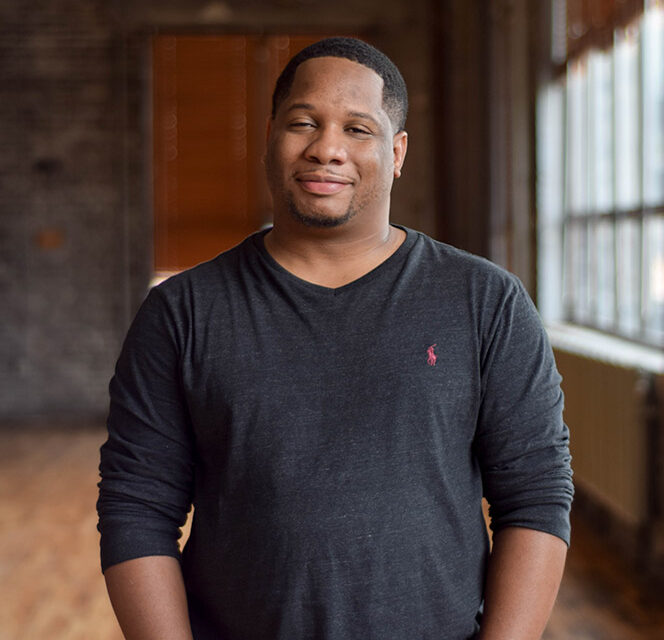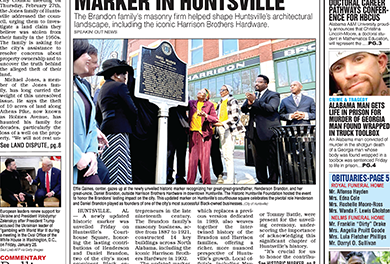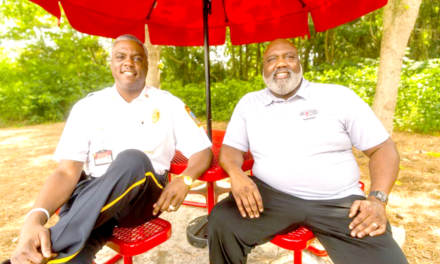By Dayvon Love
One of the central elements of the condition of Black youth in the U.S. is that they are being socialized in a society full of dehumanizing systems. Pop culture, public education, politics and a host of other societal messages bombard Black youth with the idea that they are worthless.
If we are serious about improving the quality of life of Black youth in Baltimore and around the country, we have to intentionally combat these societal forces of dehumanization.
Many cultures have intentional processes that transition children to adulthood in ways that facilitate healthy identity formation. Confucians have the Guan Li ceremony, which is a ritual that signifies the transition for a Chinese boy from childhood to adulthood. Jewish people have a bar mitzvah, which is a ceremony that transitions Jewish boys into adulthood. Both of these rituals are intentional markers where the work of youth socialization is explicit. That leaves the question: where is the adequate discussion, acknowledgment or support for this level of intentionality when it comes to Black youth and their transition into adulthood?
Societal propaganda of Black inferiority and inherent criminality creates an environment where approaches to Black youth are based on the idea of fixing the image of their inherent pathology. In other words, many programs that work with Black youth approach them as potential problems to be saved from making bad life choices– instead of being trained to build upon the strong legacy of African people who are the foundation of human civilization. This approach lends itself to an ecosystem of programs for youth that amount to disaster management. Programs that use this method primarily address the short-term, basic needs of the community being served. The “disaster management” focus obscures the work needed to build intentional processes of child socialization. Opportunities for child socialization are necessary for Black youth to engage in the work of identity formation, which is crucial in combating societal propaganda of Black inferiority. Black children need a process to build an affirmative Black identity, rooted in strength and service.
Given the power of the societal assault on the humanity of people of African descent and Black youth in particular, any youth development program that does not intentionally combat this propaganda will be ineffective at addressing itself to the holistic needs of Black youth. Furthermore, programs should be designed to bring out the inherent genius in Black youth, which is often rendered invisible by the dominant narratives of Black inferiority that depict Black youth as helpless people who need white saviors to free them from their pathological community and environment.
African Centered Rites of Passage programs are designed to provide a framework for identity formation for Black youth that can successfully combat the societal propaganda regarding notions of inherent Black pathology. Rites of passage is a process by which Black adults guide the youth through a culturally rooted process of rituals that culminate into the youth entering the next stage in their lives (i.e. adulthood). Young people are typically organized into “lines” where they are brought through the process as a group, and the youth develop deeper bonds with each other and the adults guiding them through the process. This provides the space for reflection and connection that in the best cases, lasts a lifetime. This built-in network that is intergenerational and culturally rooted equips young people with the tools needed to navigate the societal dehumanization that Black youth experience in this society. More importantly, it forms the basis for developing a strong sense of identity that can be the basis for that young person developing into an adult who can make important contributions to the family, their community, and ultimately the world.
Baltimore and cities like it need to move toward making African-centered rites of passage a centerpiece of the work to help Black youth navigate the societal propaganda that dehumanizes Black youth. Baltimore Rites of Passage Initiative (BROPI) is a project that is reinvigorating Rites programming in Baltimore as a central way of addressing the challenges that we are having with our youth.
I urge everyone who is interested in giving Black boys in Baltimore the tools they need to turn away from the social forces that encourage them to harm themselves and each other to check out and support BROPI.
You can find more information about BROPI at mentormddc.org/bropi.
Dayvon Love is the director of public policy for Leaders of a Beautiful Struggle in Baltimore.
The post A call to action: how rites of passage can combat attacks on the minds of Black boys appeared first on AFRO American Newspapers .











